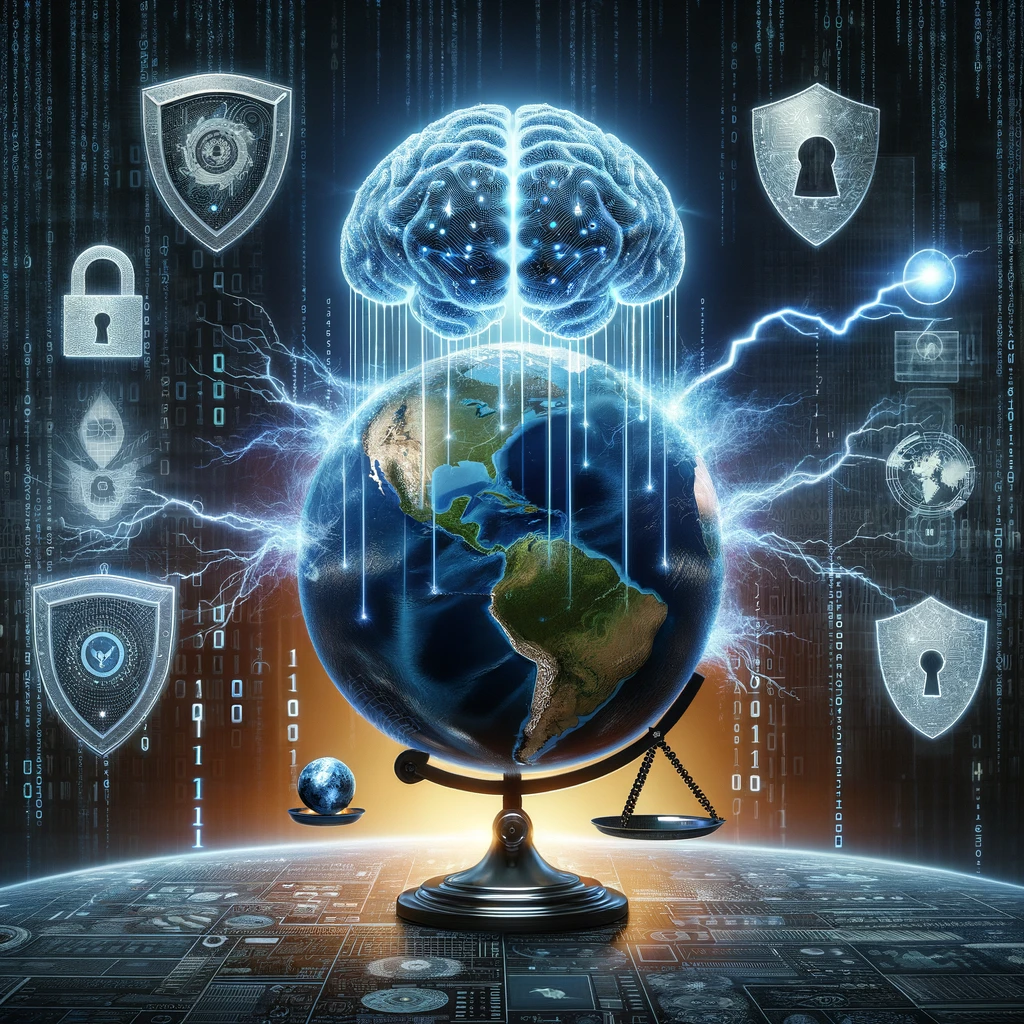AI at a Crossroads: Navigating the Future of Artificial Intelligence with Safety at the Helm
Charles M. Walls | March 14, 2024 | Views: 215

In a groundbreaking report that's got everyone talking, the U.S. government is being urged to take bold, immediate action against the potential national security threats posed by artificial intelligence (AI). Picture this: a future where AI could pose a danger so severe, it threatens the very existence of humanity. That's not science fiction; it's a serious warning issued this Monday, and the stakes couldn't be higher.
The report, which got an exclusive early peek by TIME, lays it out straight: we're at a critical juncture with AI development, teetering on the edge of a future that could destabilize global security as profoundly as nuclear weapons once did. The concept of artificial general intelligence (AGI), machines that could think and act like humans, is fast transitioning from a distant dream to an imminent reality. Leading AI labs are on a sprint to crack AGI, potentially within the next five years.
Digging deep for over a year and consulting with over 200 insiders from the government to the frontlines of AI research at giants like OpenAI and Google DeepMind, the report's authors uncovered a mix of ambition and alarm within the AI community. It turns out, many who are building these advanced AI systems are worried about where their tech could lead, especially when driven by the business-minded bigwigs at the helm.
Their findings are distilled into "An Action Plan to Increase the Safety and Security of Advanced AI," a document that doesn't shy away from calling for dramatic shifts. Among its boldest moves: suggesting Congress should cap the computing power used to train AI, with a new federal watchdog setting the limits. The idea is to keep the tech in check, requiring special permissions for any AI that wants to push those boundaries. They even float the idea of making it a crime to share the intricate details of powerful AI systems, punishable by time behind bars.
The backdrop to this urgent call to action is a contract from the State Department, worth a quarter of a million dollars, landed by Gladstone AI. Their task was to dissect the risks AI poses and offer a blueprint for mitigating them. Despite their comprehensive 247-page report, the State Department has kept mum on its reception.
As AI technologies like ChatGPT grab headlines and spark public fascination, the report arrives at a moment of heightened awareness and concern. It’s a critical inflection point where the pace of AI advancements is forcing a rethink on safety and regulation. The proposal to regulate AI's development might sound extreme, but it's rooted in a desire to slow down a tech race that could spiral out of control, endangering us all.
Skeptics abound, including AI policy experts who doubt such stringent measures will take hold without a significant push from unforeseen events. Meanwhile, the brothers behind Gladstone AI, Jeremie and Edouard Harris, share a history of deep involvement in the AI sector. They're no strangers to Silicon Valley's "move fast and break things" mantra, but they argue the rulebook changes when the risks scale to existential.
As this conversation unfolds, a new PAC, Americans for AI Safety, has launched with the ambitious goal of making AI safety a pivotal issue in the upcoming 2024 elections. The Harris brothers, alongside former Defense Department official and PAC co-founder Mark Beall, are advocating for a future where AI's immense potential can be harnessed without courting disaster.
This report is more than a wake-up call; it's a roadmap to navigating the uncertain terrain of AI development with our eyes wide open. The challenge now is to balance the race for innovation with the imperative of safety, ensuring that AI serves humanity without endangering it.




